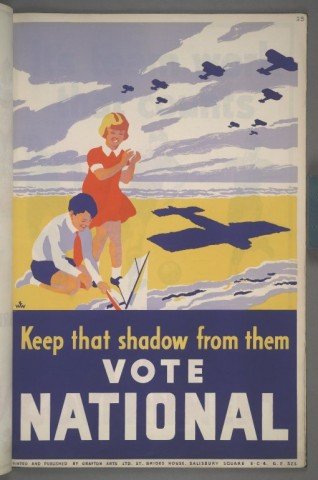A few years back I published an article, 'The shadow of the airliner: commercial bombers and the rhetorical destruction of Britain, 1917-1935', in Twentieth Century British History. At that time I was given a link for free downloads which I provided for those without instiutional access. But it turns out that (1) I wasn't really supposed to do that and (2) it no longer works anyway. But TCBH's open access policy allows self-archiving after 24 months, which period has long since elapsed, so I've uploaded the accepted version of 'The shadow of the airliner' as a free download. Here again is the abstract:
Aerial bombardment was widely believed to pose an existential threat to Britain in the 1920s and 1930s. An important but neglected reason for this was the danger from civilian airliners converted into makeshift bombers, the so-called 'commercial bomber': an idea which arose in Britain late in the First World War. If true, this meant that even a disarmed Germany could potentially attack Britain with a large bomber force thanks to its successful civil aviation industry. By the early 1930s the commercial bomber concept appeared widely in British airpower discourse. Proponents of both disarmament and rearmament used, in different ways and with varying success, the threat of the commercial bomber to advance their respective causes. Despite the technical weakness of the arguments for convertibility, rhetoric about the commercial bomber subsided only after rearmament had begun in earnest in 1935 and they became irrelevant next to the growth in numbers of purpose-built bombers. While the commercial bomber was in fact a mirage, its effects on the disarmament and rearmament debates were real.
![]() This work is licensed under a Creative Commons Attribution-NonCommercial-NoDerivatives 4.0 International License.
Permissions beyond the scope of this license may be available at http://airminded.org/copyright/.
This work is licensed under a Creative Commons Attribution-NonCommercial-NoDerivatives 4.0 International License.
Permissions beyond the scope of this license may be available at http://airminded.org/copyright/.


